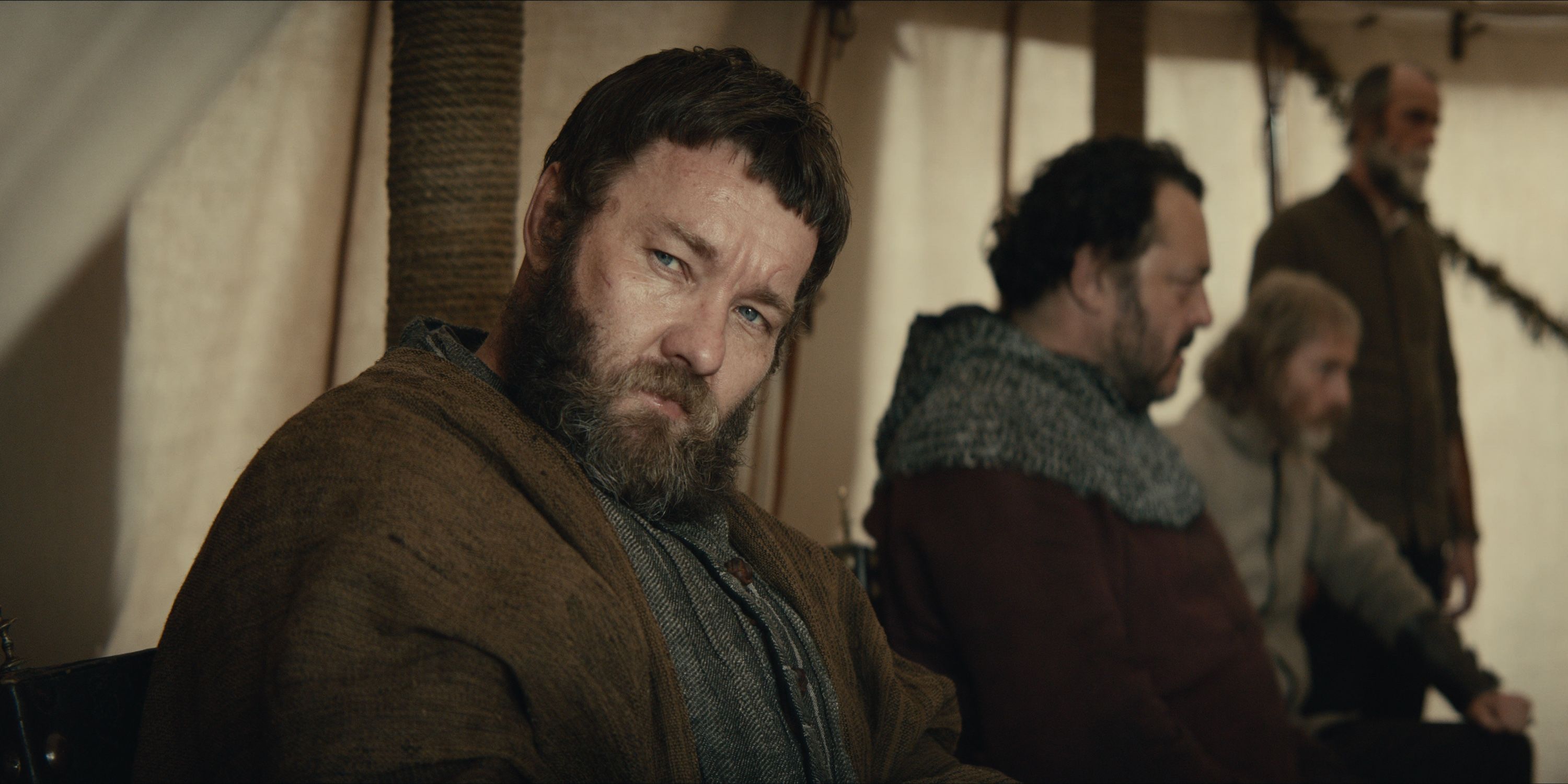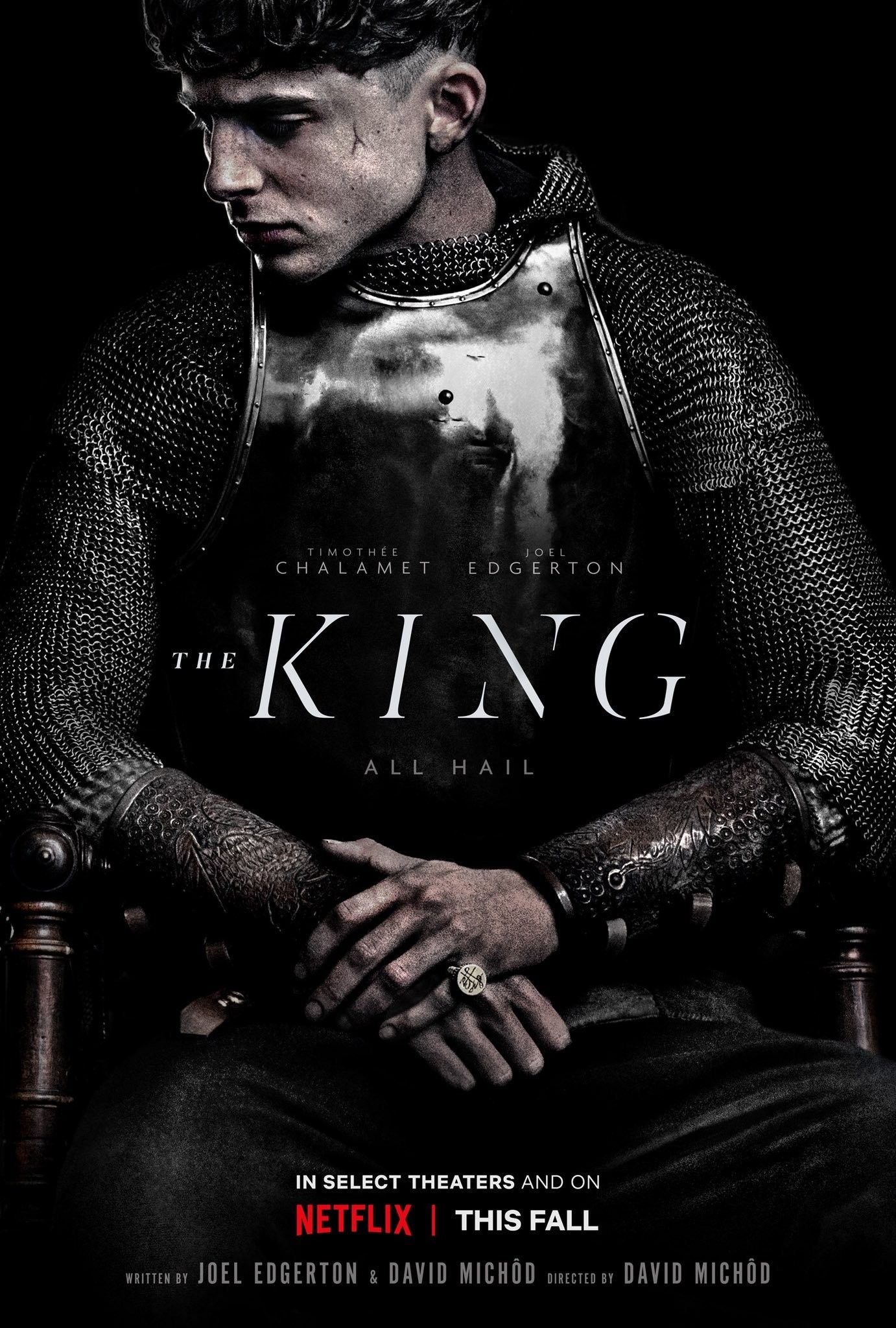Sir John Falstaff. Friend and mentor of Hal, the man would eventually become King Henry V. The famed character created by William Shakespeare. In the film, The King, the filmmakers take a a different approach to the classic character. Screen Rant got to speak to actor/writer Joel Edgerton, who plays Falstaff in the new Netflix film. We talk about the genesis of the project and why they wanted to write this new take on Falstaff.
Screen Rant: You and David Michôd have been working on this script for The King since 2013. What was it about Shakespeare's King Henry plays that inspired you guys to do this version of the story?
Joel Edgerton: It's a good question. The character of Hal, and subsequently Henry V, I actually see them as two sides of the same coin. I played those characters when I was 25 and 26. I guess they've been a part of me and a part of my interest for such a long time. And the idea of creating a movie of that life story, was very alluring to me. And I guess I grew to the point where I had the opportunity to go pitch that to somebody. I was very much on the fence about whether they were going to laugh me out of the room or whether they were going to say yes.
When they did say yes, I went to David and was like..."How about it? What do you think?' And very quickly, together, we decided we're not going to just make a Shakspeare film. We're gonna break off for a bigger challenge for ourselves in terms of doing our own thing. To cover our own path. Which is what the result is.
Screen Rant: The approach of Falstaff, in this one ...it's very different from how Falstaff is usually portrayed. What were the elements you want to make sure..I want to keep these things so that people know, this is still Falstaff, but do a different take on that. What are the elements you wanted to keep to make him recognizably Falstaff?
Joel Edgerton: Yeah...that's interesting...the risk of doing the movie to start with...you're treading on hallowed ground by separating from Shakespeare. The idea of using Falstaff for a different purpose. That felt like a risk as well, but we were looking at the real life of a man called John Oldcastle, who a lot of people say that (Falstaff) was based on. Who had been a general, who had fought a war, had been a general for Richard 2nd and Henry IV. Imagine it's the war weary version of Falstaff, rather then the large jester, ineffectual beloved Falstaff. I was like..alright, we're gonna step away from that. I'm going to be pinning myself to a dart board here. But it was important to keep a sense of fun. A sense of pho father about him. And also about a questionable duplicity about his agenda. But everything else is sort of a different thing. He's the kind of guy that if you cross him in the pub, he could headbut you. He's not as much of a kind of a fool or a liar. But he speaks truth.
So yeah, it was a risk, but the great thing is that there are so many wonderful Falstaff out there in the past. We can always watch that. We just chose to do a lot of our own things with this, and we're proud of that. And then, someone else wonderful will play Falstaff more akin to what Shakespare intended again. So, it's good. I think it's good that we have our own versions of things.


